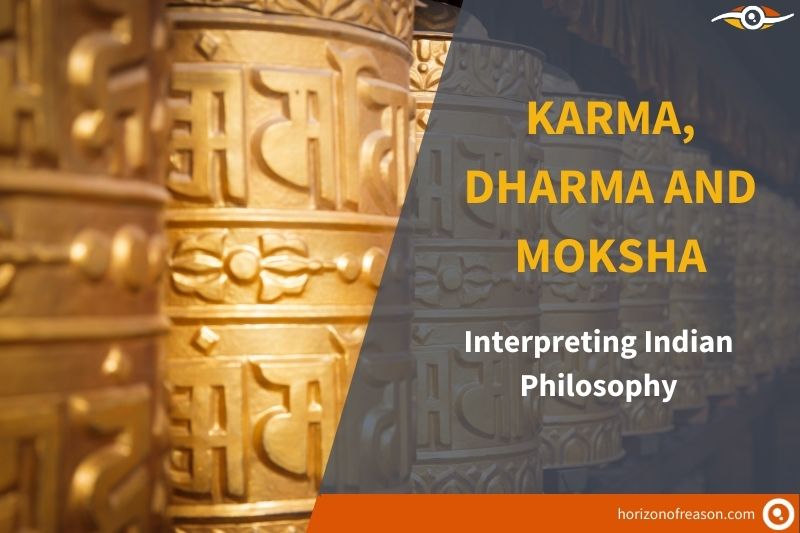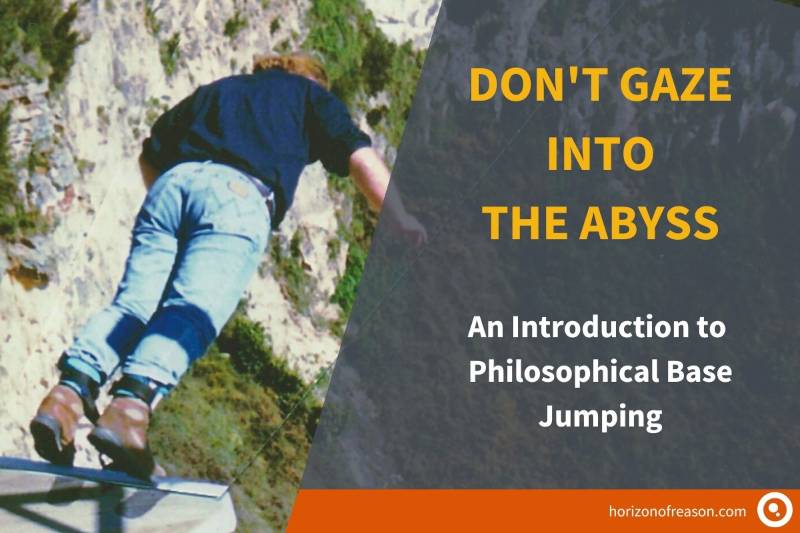
Karma, Dharma and Moksha: Interpreting Indian philosophy

Peter Prevos |
1265 words | 6 minutes
Share this content
Karma is a popular concept in contemporary western culture, often used in a simplistic form. To the average New Age practitioner, Karma is all about punishment and reward. Karma is, however, an more complex concept central to classical Indian philosophy. In this article, some of the issues related to Karma about rebirth are teased out. The main question to be answered is whether Karma can be separated from the idea of rebirth, without severe loss in its appeal as a moral ideal.
Karma, Dharma and Mosha
In the Yoga- sutras and in the Bhagavad Gita the word karma is used in many different ways. Krishna admits to Arjuna that Karma is hard to understand and that "even the intelligent are bewildered" in determining what Karma is.1
Besides these complexities, there is a central notion of Karma which is almost identical across the different schools of Indian philosophy. Monima Chadha gives five separate meanings for Karma.2
- Karma is firstly understood as any act, being physical, mental, intentional, unintentional, moral or immoral etc.
- Any form of mental activity in any state of consciousness, this is not the action itself, but the intention of the action.
- The pivotal notion of the five meanings given by Chadha, is Karma as all acts that have moral value.
- In the fourth sense, Karma is understood as an invisible force or law shaping the destiny of all living beings. This is the context in which Karma is understood in Western culture.
- Lastly Karma can be interpreted as the accumulated result (residue) of all acts during one's life.
The central premise of the law of Karma is that the universe is essentially morally just and that right actions are rewarded, and bad actions are punished. Good actions are those which are performed by dharma. There is no precise western equivalent by which to translate dharma. Austin Creel describes dharma as the pattern of ethical regulation and the justification of that pattern. Dharma refers to what one should do and why one should do so.3 In the Hindu tradition, duties are defined by one's caste and stage of life as delineated in the scriptures such as The Laws of Manu. Dharma can not be determined by examining beings and ascertaining what the law is.
Karma and dharma can give an explanation for the social system and one's place in that system. Dharma refers to where one is in life at a particular moment and the duties that belong to that position. Karma refers to the journey of the self through time and gives the individual a sense of place.
Dharma has naturalistic and normative aspects. The normative part of dharma is the religious and moral law as described above. The naturalistic aspect of dharma is dharma as an attitude, a disposition. Potter describes dharma as "the attitude of concern towards others as a fundamental extension of the self". It is this attitude that is instrumental in attaining moksha, in achieving enlightenment.4 Karma is the cause of rebirth and moksha is the liberation from the eternal wheel of rebirth. Potter defines moksha as freedom from restrictions initiated by the not-self.
Dharma and moksha presuppose each other and are related in temporal succession. Through renunciation of the fruits of one's actions, a man or woman of dharma can perfect themselves and remove the sources of all frustrations to achieve moksha. The Indian concepts of karma, dharma and moksha are thus closely related and dependent on each other. Karma can be considered as the stepping stone for moksha, with dharma as the connecting moral principle. An understanding of Karma and its relation to rebirth reveals how one can attain moksha.
Rebirth, transmigration and reincarnation
The law of Karma is closely related to the doctrines of rebirth, transmigration and reincarnation. Hiriyanna argues that transmigration is a necessary corollary to the doctrine of Karma because not all the causes of one's actions can be found within the narrow limits of a single life.5 The theory of Karma has often been questioned because the doctrines of rebirth, transmigration and reincarnation appear implausible. The objection is that there can not be an individual soul that persists over many lives, without continuity of body and memory.
The question that will be dealt with in this last section is whether we can disassociate the Hindu system of Karma from its commitment to the doctrines of dharma, transmigration and rebirth without severe loss in its appeal as a moral ideal.
Traditional theory holds that Karma is a fully deterministic and mechanical moral law which does not require any interference of any god. The law of Karma can explain inequalities observed among creatures and gives an explanation of the human condition. Karl Potter classifies Karma and rebirth as a theory in that they are "a set of connected hypothesis, involving the postulation of unobservable or un-commonsensical items, that purports or predict, postdict, or otherwise explain processes in the world".6 The law of Karma can, however, not be classified as a scientific theory in the Western sense of the word. The transcendental character of transmigration and rebirth make it impossible to provide any proof within the epistemological boundaries of Western science. A weak point in the theory of Karma is that any act that can not be explained by physical or other direct causes can be explained away by Karma. From this point of view, the theory of Karma becomes implausible if rebirth remains unproven.
The Yogasutras offer an argument for rebirth in that the will to live exists in every creature and the disposition to the fear of death persist by its very nature because it exists in the form of subliminal impressions of previous lives. This argument is, however, a logical fallacy because there are other plausible causes thinkable which can explain the instinctive fear of death.
Several scholars have offered arguments for the separation of the doctrines of rebirth, transmigration and reincarnation from the law of Karma. Potter thinks that acceptance of the theory of Karma is not dependent upon the prior transmigration of the soul because, once one has accepted the ultimate value and possibility of attaining freedom, then the conclusions drawn in the Bhagavad Gita follow whether transmigration is brought in or not. The approach taken by Potter limits the philosophy of Karma to a mere moral theory. Because of this, the idea loses its capacity to provide an explanation for the human condition, which is an essential aspect of its moral appeal.
According to the Chadha, the theory of Karma alone can not support the idea of rebirth unless the notion of Karma is reinterpreted in a restricted sense. She states that rebirth, as a spiritual phenomenon, as suggested by Brahminical schools, is implausible because it can not be proven. Rebirth must, according to her, be seen as a symbolic model supporting the theory of Karma. In the approach to the dissociation of Karma from rebirth, proposed by Chadha, the theory of Karma holds its capacity to explain the human condition, thereby keeping its appeal as a moral ideal.
Notes
Juan Mascaró, The Bhagavad Gita (London: Penguin Books, 1965), p. 23.
Monima Chadha, Topics in Indian philosophy (Churchill: Monash Philosophy, 1998).
Austin B Creel, 'Dharma as an ethical category to freedom and responsibility', Philosophy East and West 22 (1972).
Karl Potter, Presuppositions of India's philosophies (Motilal Banarsidass, 1991).
Hiriyanna, The essentials of Indian philosophy (Delhi: Motilal Banarsidass Publishers, 2000).
Karl Potter, 'The karma theory and its interpretation in some Indian philosophies', in: Wendy Doniger O'Flaherty, editor, Karma and rebirth (University of California Press, 1980).
Share this content


